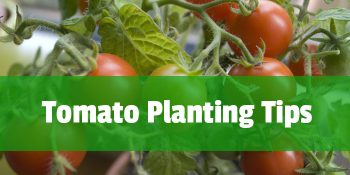… well, you might want to think again!
Join this year’s CSU Lecture
— Nov. 12 —
on
Making Tastier Tomatoes
You know the experience: You slice into a red, juicy, store-bought tomato, take a bite and…nothing. Perhaps you want some tomato with that salt?
This familiar, flavorless experience might someday be less common thanks to the work of Harry Klee, professor of horticultural sciences at the University of Florida and featured speaker at this year’s Thornton-Massa Lecture, 3:30 p.m. Nov. 12, at the Lory Student Center Theater at Colorado State University.
Klee hasn’t always been in the flavor game.
After receiving his Ph.D. in biochemistry from the University of Massachusetts, he conducted postdoctoral research at the University of Washington focusing on the soil bacterium Agrobacterium tumefaciens, a vital organism for gene transfer and genetic engineering of plants. He then spent 11 years working on a Monsanto team developing herbicide-resistant crops.
In 1995, he moved to the University of Florida to take an endowed chair in the Department of Horticultural Sciences. There, he created a program that uses biochemistry and genetics to better understand the flavor of fruit crops. His work has uncovered the plant-created compounds that produce truly tasty tomatoes. Then, using large-scale genomics, he and his team have created a genetic blueprint for restoring these compounds in commercially grown tomatoes. The goal is to bring heirloom flavor back to tomatoes that aren’t grown in your backyard – while not decreasing yield.
He and his lab are also extending their work to strawberries, melons and even lettuce.
Klee is a member of the U.S. National Academy of Sciences and president of the American Society of Plant Biologists.
Public lecture
Klee’s lecture, “Why Don’t My Tomatoes Have Any Flavor? A Case Study in Industrial Agriculture,” is free and open to the public.
The 18th annual Thornton-Massa Lecture is co-hosted by the College of Agricultural Sciences and the College of Natural Sciences Department of Biology. The series is made possible by a gift that honors the late Dr. Emil Massa and the late Bruce and Mildred Thornton, who shared a passion for biodiversity, plant genetics, agriculture and horticulture.
Dr. Emil Massa was an orthopedic surgeon who, beginning in 1960, practiced for more than 30 years at St. Joseph’s Hospital in Denver. Massa had an abiding sense of appreciation and wonder for the phenomena of the natural world. He endowed this lecture series to engage the public in a vital conversation to honor, preserve and investigate nature’s rich vocabulary of organisms.
Massa’s legacy endures in other ways: the grounds of St. Joseph’s Hospital are graced with trees he raised from seed; after he retired from medical practice, he restored rare books, including those in the Western History Room of the Denver Public Library and at the Denver Botanic Garden.
Bruce and Mildred Thornton shared a life-long interest in and commitment to the study, identification and preservation of seeds. Mildred attended what was then called Colorado State College, and after receiving her master’s degree in botany, she went to work as a junior botanist at the Federal Seed Laboratory in Washington, D.C. Bruce served on the Colorado State College faculty and the Agricultural Experiment Station staff from 1927-1962, and he headed the Colorado State Seed Laboratory from 1940-1961.
Bruce and Mildred married in 1930. When Bruce retired in 1961, Mildred took over the directorship of the State Seed Laboratory, where she had worked intermittently for 20 years.
SPREAD THE NEWS
COMMENT, Like, Follow & SHARE @I70Scout
RELATED NEWS CURRENT EDITION
WEATHER & TRAFFIC PUZZLES RECENT NEWS ADVERTISE WITH US

Leave a Reply